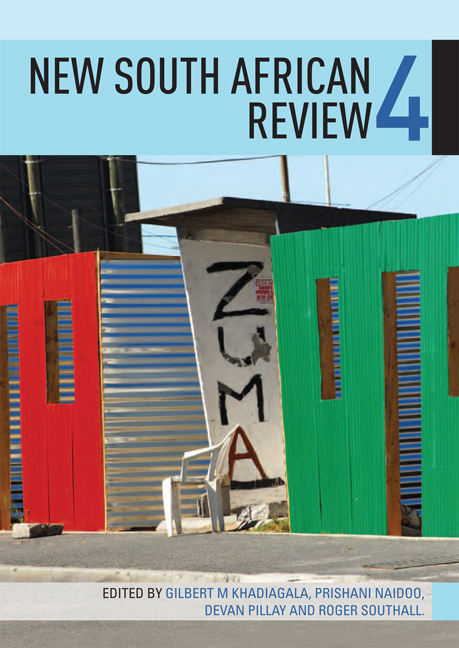Introduction: South Africa's fragile democracy: Twenty years on
Published online by Cambridge University Press: 21 April 2018
Summary
South Africa's fifth democratic general election takes place a few months after the passing away of the pre-eminent icon of national liberation, Nelson Mandela. His death on 5 December 2013 was greeted with a massive outpouring of grief, as millions from all sections of society – black and white, workers and capitalists, rural traditionalists and modern suburbanites, young and old, socialists and liberals – paid tribute during the week-long proceedings leading up to his funeral. It was a time of reflection and of celebration, of tears and of joy, remembering a life that embodied the hopes and dreams of millions, not only in this country, but throughout the world. Indeed, in an unprecedented show of international solidarity, world leaders from almost every nation descended on South Africa last December to hail one of the true heroes of the modern era. In keeping with his legacy of reconciliation, the leader of the capitalist West, the US president Barack Obama, shook hands with the leader of socialist Cuba, Raul Castro.
But what was Mandela's true legacy? In many senses (as Mao Tse Tung once said in relation to the French Revolution) it's too early to tell. The country is caught between celebrating the achievements of our democracy, and bemoaning the abject failure to eradicate poverty, unemployment and widening social inequality. Were the ‘balance of forces’ in 1994 such that a political settlement was only possible if the essentials of (predominantly white) corporate economic power and white land ownership remained intact? Or was there space to use the ‘Madiba magic’ to demand much more, if not the promise of ‘socialism’ then at least the inclusive development path envisaged by the Freedom Charter? Historians will be debating this for decades to come.
Whatever the strengths and weaknesses of Mandela's political legacy, his personal attributes shine through, and resonate with the best in humanity – the combination of humility and steely determination to achieve one's goals; personal integrity; the willingness to introspect, admit failures and learn from others; kindness towards other living beings and a generosity of spirit. These are the qualities towards which South Africans aspire, that oblige most people – except the lunatic fringes – to forgive whatever shortcomings this icon may have had, and to dwell on the gifts he has bestowed on the nation and the world.
- Type
- Chapter
- Information
- New South African Review , pp. 1 - 16Publisher: Wits University PressPrint publication year: 2014



